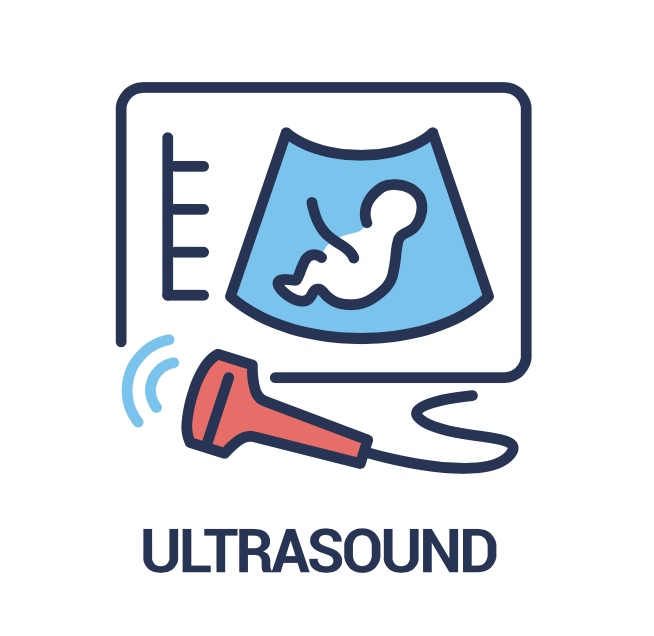Research into the Gifted Dyslexic population remains scarce, but there have been a few articles in the last years that may be helpful in identifying and supporting these students. One difficulty interpreting data from twice-exceptional research is that studies that...
Multi-Dimensional Assessment of Dyslexia with Machine Learning
Congratulations to Drs. Mark Moulton and Brock Eide for their publication of a novel multi-dimensional approach to measuring dyslexia risk. See publication HERE. This is the paper based on the novel Neurolearning dyslexia screening app. As the paper describes...
Dyslexia Wars: Attack on Dyslexia Definition
A brief note about about an article in Hechringer Report (also published in Scientific America). It is attacking the "unexpected" difficulty in reading (in the presence of average or above-average IQ) that has been a part of the dyslexia definition since its...
Redefining Dyslexia [Premium]
In the past year, there have been some remarkable papers published in the field of dyslexia. By and large, the changes seem to be good news and more inclusive of the diverse ways that dyslexia presents – including gifted individuals with dyslexia. But change is likely to be messy – and schools and educational and research groups are likely to different and present different information to students and their families. THE PENDULUM SWINGS AGAIN ON DISCREPANCY Although the earliest professional accounts about dyslexia recognized the unexpected connection of high intelligence with difficulties in reading, writing, and spelling, the dyslexia field has been involved in many warring opinions about whether cognitive tests are worthwhile. Without pointing fingers, many researchers and educational leaders over the years questioned […]
Schools Missing the Boat on Dyslexia and Math [Premium]
Forty-four percent of dyslexic students also meet diagnostic criteria for math disability, according to researchers, but math rarely receives specific designations on students’ individualized education plans. What is the result? Dyslexic students with math disabilities underperform, fail, get held back, and find themselves excluded from certain academic tracks and majors (like science, technology, and engineering). What they really need though are informed teachers and school programs that understand their specific needs and teach them based on their strengths. CHALLENGES AND STRENGTHS IN MATH In a review of 50 consecutive dyslexic students seen in our clinic, the following patterns were seen in their WISCIV IQ and WIAT-III achievement scores. Our practice was unusual because we had many gifted referrals from the Silicon Valley and many students […]
Dyslexic Cognition and Processing Speed [Premium]
Processing speed can be a very frustrating aspect of dyslexia and dyspraxia. It doesn’t have its own DSM diagnosis code and in truth, processing speed in the context of dyslexia and or dyspraxia have very different sources. Some people think that it doesn’t matter what the source of the speed problems are, but I think it’s more important than people realize. Most people in the dyslexia field don’t have the experience of being a neurologist – but it’s a pity that more people haven’t had those experiences. If you have assessed people throughout the life cycle (kids through adults) and in the setting of disease (like brain injury) or learning difference (like dyslexia), there are dramatic differences that affect learning and communication. Common issues that […]
Dyspraxia More than Dyslexia [Premium]
Dyslexia is known for its high co-occurrence with other neurodevelopmental conditions. Numerous studies have documented the high overlap (for review of the literature visit Brimo et al., 2021), but be aware that the literature is messy with different definitions of dyslexia and dyspraxia (sometimes referred to as developmental coordination disorder or DCD). A large percentage – 25-40% – of dyslexic individuals also have a neurodevelopmental conditions such as dypraxia (motor difficulty), ADD, or dyscalculia. Interestingly, the presence of dyslexia is negatively correlated with autism spectrum-related inflexibility, a finding supportive of the hypothesis of Williams and Casanova (2010) which suggested that dyslexia and autism may have opposite features based on cortical structures. The focus of this article is dyspraxia in the context of dyslexia. Even when […]
In Memoriam: Beryl Bennaceraf, Ultrasound Pioneer
"What helped me was realizing that there was silver living, that it wasn't all negative....in radiology... pictures just speak to me. I can look at a picture and I can see the pattern. I can see things that nobody else can see." — Beryl Bennaceraf, MD With great...
Building Spatial Talents [Premium]
“…Spatial reasoning has been key to numerous scientific advances, such as the discovery of the double-helix structure of DNA and the epidemiological research using maps to discover the true source of cholera outbreaks. It is also essential to many 21st-century careers, particularly in science and engineering… But are we able to see and support these particular kinds of talent in our classrooms?” — Lakin and Wai, Phi Delta Kappan What are spatial talents? In short, they are talents that involve visualizing objects and places in 3d and being able to manipulate them at will. These are talents that seem rich within the dyslexic community, but may be overlooked or neglected in conventional school activities. It’s an important strength set to recognize because it tends […]
The Language of Math [Premium]
“The meanings of words in general usage are often very different from their mathematical meanings.” — Marilyn Burns Educational leaders are becoming increasingly aware of the importance of teaching the language of math in order to raise understanding and performance. There can be extensive reading and writing demands associated with math learning and dyslexic students may be at particular disadvantages learning because they may have trouble reading word problems, dual tasking (listening while taking notes), and confusion with symbols. A paper by Riccomini and colleagues recalled some of the difficulties associated with learning the language of math: – Words that have different meanings in contexts (a foot = 12 inches vs. foot of the bed) – Homonyms (pie vs. pi) – Concepts that may be […]
Understanding Dyslexia as an Exploratory Advantage [Premium]
“Approaches to explaining developmental dyslexia must account for both the difficulties and the enhanced abilities that are typical of people with developmental dyslexia. All the proposed strengths… relate in some way to seeking out the unknown, often at the expense of exploiting known information. A useful framework for tying together these observations is cognitive search, which involves a trade-off between exploration–exploitation.” — Helen Taylor and Martin David Vestergaard In an extraordinary article in Frontiers in Psychology, two Cambridge University scholars have put forth a paradigm-shifting concept of dyslexia that integrates over a century of research from diverse perspectives. It is a tour-de-force that might help society put dyslexia in its proper context. From the paper (the simple term “dyslexia” is substituted for developmental dyslexia […]
Dyslexia as an Evolutionary Advantage
Dyslexia is not a neurological disorder or even an impairment, but rather a concession for having cognitive strengths in exploration, big-picture thinking, creativity, and problem-solving that have contributed to human survival amid changing environments. This insight...

![Research Updates in Gifted Dyslexics [Premium]](https://www.dyslexicadvantage.org/wp-content/uploads/2024/03/Research-Updates-in-Gifted-Dyslexics-A-400x250.png)


![Redefining Dyslexia [Premium]](https://www.dyslexicadvantage.org/wp-content/uploads/2023/11/Redefining-Dyslexia-Premium-e1699767152962-400x250.jpg)
![Schools Missing the Boat on Dyslexia and Math [Premium]](https://www.dyslexicadvantage.org/wp-content/uploads/2023/03/SCHOOLS-MISSING-THE-BOAT-ON-DYSLEXIA-AND-MATH-400x250.png)
![Dyslexic Cognition and Processing Speed [Premium]](https://www.dyslexicadvantage.org/wp-content/uploads/2023/02/Dyslexia-Cognition-and-Processing-Speed-Dyslexic-Advantage-400x250.png)
![Dyspraxia More than Dyslexia [Premium]](https://www.dyslexicadvantage.org/wp-content/uploads/2023/02/DYSPRAXIA-MORE-THAN-DYSLEXIA-400x250.jpg)

![Building Spatial Talents [Premium]](https://www.dyslexicadvantage.org/wp-content/uploads/2022/10/Building-Spatial-Talents.png)
![The Language of Math [Premium]](https://www.dyslexicadvantage.org/wp-content/uploads/2022/10/The-Language-of-Math-Dyslexic-Advantage.jpg)
![Understanding Dyslexia as an Exploratory Advantage [Premium]](https://www.dyslexicadvantage.org/wp-content/uploads/2022/10/Screen-Shot-2022-10-02-at-8.43.03-PM.png)














